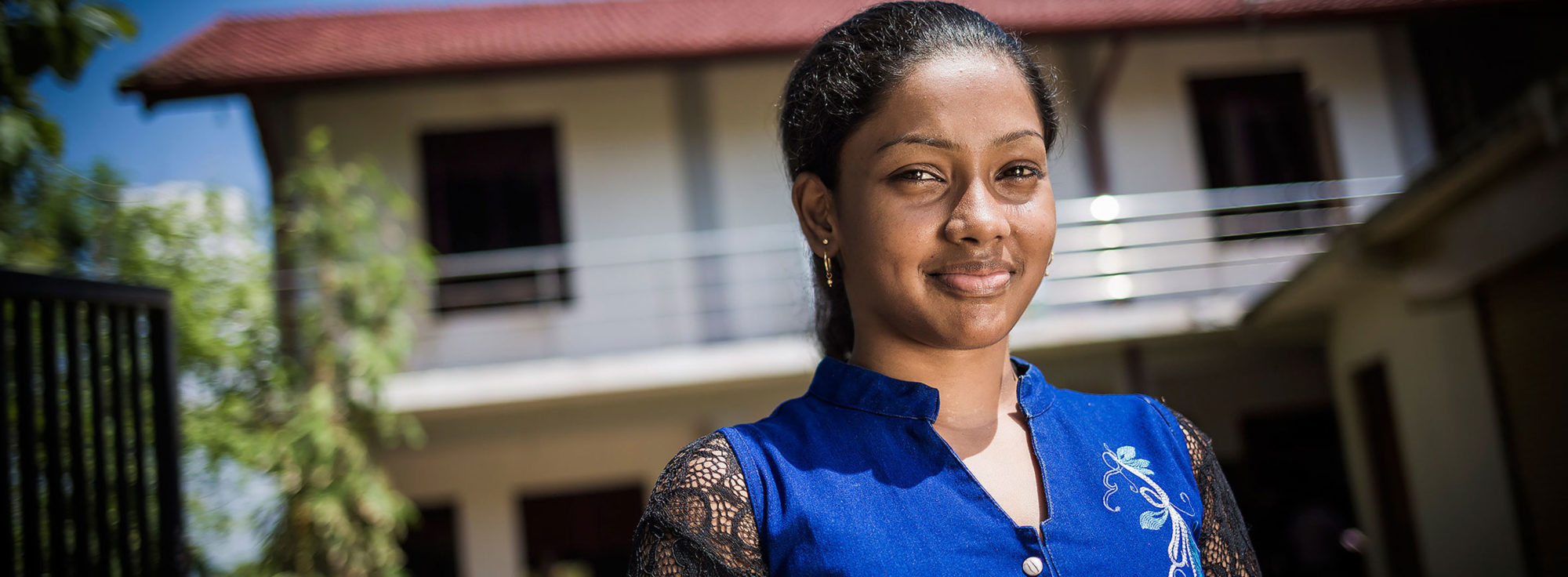Almost everyone remembers the TV images of the big waves. Sachini Kaushalya doesn’t. She was there when the tsunami changed her life forever and took her friend away from her. Today Sachini supports other survivors to a safer future in Sri Lanka.
Hanbantota district, southern Sri Lanka. The morning of December 26, 2004. The animals seek higher ground. Nobody understands why. Hours later the disaster is a fact.
– I was seven years old and did not understand what we had done wrong. Why nature was so angry with us, says Sachini Kaushalya.
She was not on the beach that day. She could seek shelter in a house in higher terrain. It saved her life. But her father worked on the beach a few hundred yards away from their home. He watched as the ruthless water masses threw themselves over the island. But he also survived, miraculously.
Thousands of others were not as lucky. Sachini turns away, trying to hide the tears pouring down her chin. But continues.
– When the water went away, I went out on the fields. All the houses were gone and there were dead people everywhere. My friend Dilani was one of them.
The tsunami 2004 took 30,000 people’s lives in Sri Lanka. 1.5 million people were forced to leave their homes. Here on the south coast and on the east coast, the devastation was the greatest. Square miles of farmland were destroyed. Cholera broke out. Many turned to drugs and alcohol for answers. The tsunami stunned Sri Lanka, and far from everyone has recovered.
We Effect made a special effort to help with the reconstruction of Sri Lanka. Among other things, We Effect supported Dehigahalanda Fisheries Cooperative Society. The fishing cooperative helped hundreds of people to get an income – and thus have their own resources to build a new house, afford to pay the children’s schooling and put food on the table.
– We had to work together after the tsunami. That’s how we could survive and rebuild our society again. We are stronger now but will always be sad. We will always remember those who died, Sachini explains.
We Effect also helped with the construction of an assembly hall. Here, members of the cooperative can take training courses in bookkeeping, leadership, and gender equality. The house also offers shelter during storms.
It is in this stable house, a few hundred meters from the sea, Sachini and I meet.
– I grew up in here more or less, my mother was very active in the cooperative and when she was in trainings and meetings I played in the room next door, says Sachini.
She looks away. Her nightmare did not end with the tsunami.
Three years ago her mother passed. When things could not get any worse for Sachini, her dad left her to live with another woman. She was all alone, but the cooperative gave her support. She was offered to take over her mother’s membership.
– I am a member and responsible for the youth section. I want more young people to become members of the cooperative, it makes us stronger and is a place where women can take place and gain knowledge.
